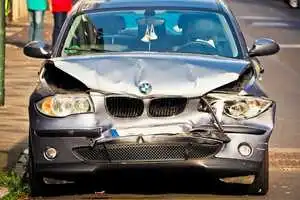Most people are not aware of what are fender benders. A fender bender is the minimal damage to your car as a result of a low-speed crash. In that sense, it is hard to understand does a fender bender counts as an accident that is worth reporting. The answer is yes. Even if your car sustained minimal damage, you should always report it to the police. Our experienced fender-bender accident lawyers at Royce Injury are here to help you navigate the insurance company negotiation process.
What is Fender Bender?
Table of Contents
ToggleFender benders are known as minor damage to your vehicle due to a low-speed collision. No major injuries are involved in such types of accidents. A common fender bender example can be a rear-end collision of a car in traffic jams or when the lane is moving slowly in a low-speed traffic lane. It is important to note that even minor accidents also have legal implications attached to them as most people do not know what to do in a fender bender with no damage. The crucial thing to do is to ensure that the collision is properly reported to the police even when there is no damage.
Why Should You Call the Police for a Fender Bender in Kansas City?
The primary reason people hesitate to report a fender bender is because they are unsure whether do fender benders go on driving records or not. The simple answer is, no. Reporting a fender bender helps it to be in official police records, and it also ensures that the data is available for any future insurance or legal claims that might come up at a later stage. The police encourage reporting a fender bender because it helps them document the crash details, which later aids in establishing liability if you decide to pursue an insurance claim for the fender bender for minor damages. In Kansas City, like other states, it is the legal obligation of the drivers to call the police for a fender bender accident. Having a fender bender reported in the official police records is the duty of every citizen who encounters such accidents.
Key Steps to Follow When You’re in a Kansas City Fender Bender
What happens after a fender bender is critical.
- If you have been in a fender bender, make sure to check you or the other person is alright.
- Next, you exchange contact with the other person if a minor fender bender claiming injury is probable. It is especially confusing to determine in the parking lot who is at fault.
- Gather some video or image evidence and report the fender bender to the police with all this documentation.
- If you’re thinking, “Should I file an insurance claim for a fender bender” or unsure, “does fender bender affect insurance”, it is best to consult a fender bender attorney.
Injuries to Be Aware of Following a Fender Bender
Fender benders don’t usually involve major injuries as they result in minor damages, if at all, to the vehicle. However, whiplash, nack & backbone pain, muscle spasms, etc, are the common injuries you may get in a fender bender. It is essential to note that fender-bender injuries can show up later and not immediately after the collision. Therefore, it is important to seek proper medical attention after the fender bender to avoid any medical complications.
Whose Fault Is It? How Do We Determine Liability in Fender Benders?
What happens when you get in a fender bender? If you are unsure if should you call the cops for a fender bender, the answer is yes. It is a crucial step for determining liability. Liability simply means who will pay for the damage. Determining liability in accidents is reliant upon the traffic rules violation, and the evidence indicated in the police report. Insurance companies ask for some kind of evidence in fender-bender claims.
Exploring the Root Causes Behind Fender Bender Accidents
Before you know what to do when fender bender, it is essential to understand what causes fender bender accidents. Extreme weather conditions reduce visibility, failing to maintain the recommended distance from the vehicle in front of you, applying brakes too late or without giving the proper indicators, and mechanical fault in the car are some common causes of fender bender accidents.
Understanding Your Compensation Rights in Fender Bender Cases
What’s fender bender has to do with an insurance claim is directly tied to the question of “Should I get a police report for a fender bender accident”. Usually, the insurance company of the at-fault party pays for the minor damages sustained in a fender bender if you successfully show the liability through a police report. Without understanding your compensation rights in these cases, you will find it challenging to tackle the complications created by the insurance company of the at-fault party.
How Our Attorneys Can Assist You Post-Fender Bender
Our fender bender and car accident attorneys at Royce Injury are experienced in navigating legal objections raised by insurance companies in such cases. They can negotiate with these companies to help you get a fair settlement for the minor damages sustained to your vehicle in a fender bender.
We discussed an important question about whether “Should I report a minor fender bender to insurance or not”. If you have suffered damage due to a minor fender bender, you should report it to the police. Moreover, you should engage an attorney to negotiate with the insurance company.
If you have been in a accident and are facing difficulties with the insurance company for minor claims, book a free consultation with Royce Injury attorneys to get the legal help you deserve.
He has founded multiple law firms and has personally represented over 20,000 clients. His firms have helped over 250,000 clients.
At Royce Injury Lawyers, personal injury law is all we do. Whether you've been hurt on the job, had an auto accident, nursing home injury, or experienced medical malpractice, you can count on our attorneys and investigators to work for you.
- Key Facts About Missouri’s No Pay No Play Law - 28th May 2025
- Understanding Taxes on Personal Injury Settlements - 23rd May 2025
- Navigating Your Rights After a Car Crash While Pregnant - 21st May 2025


